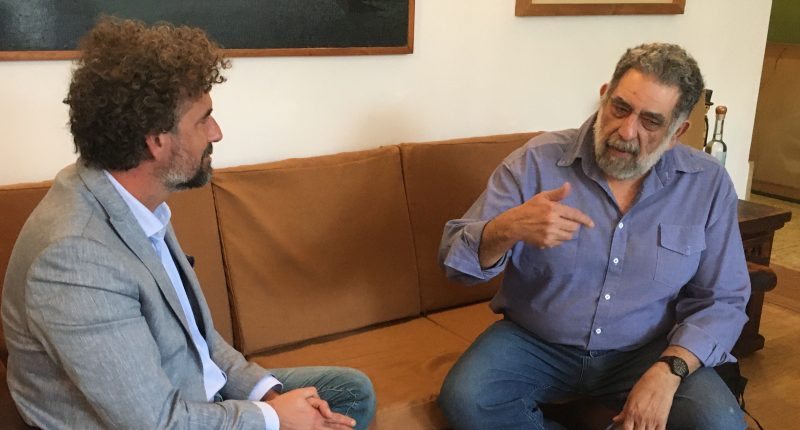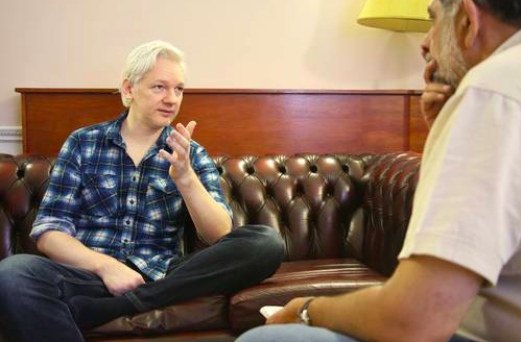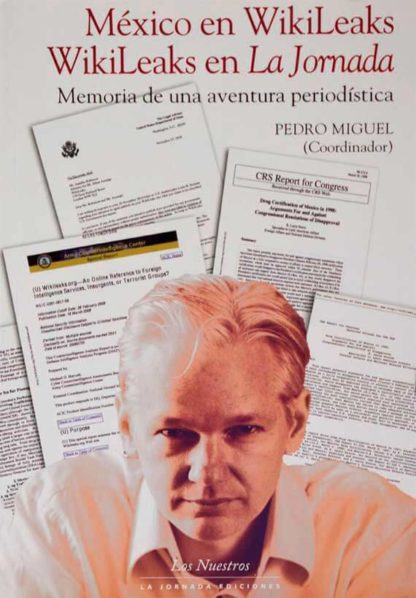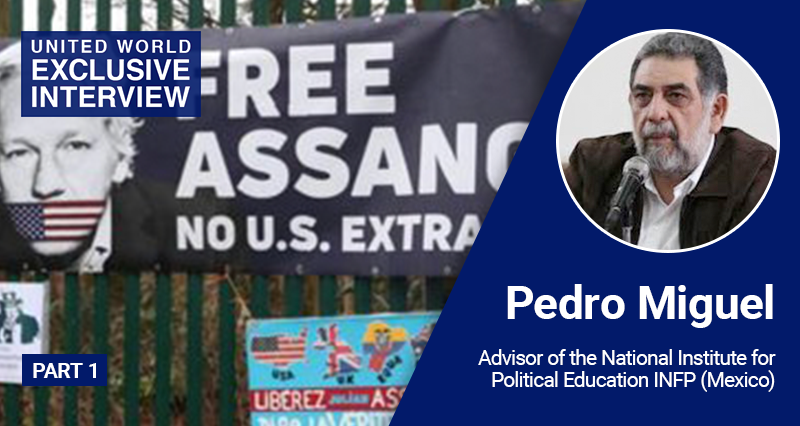Pedro Miguel is an intellectual of traditional kind: her combines various functions in his work. He is a journalist working for Mexico’s leading left-wing daily newspaper La Jornada. He is an advisor to the National Institute for Political Education of Mexico’s governing MORENA party. Therefore, he is deeply embedded into the activities within what the governing coalition calls the Fourth Transformation. And he is in close contact with Mexico’s President Andrés Manuel Lopez Obrador, whose books he edits and whom he sometimes supports when writing speeches.
Living on the outskirts of Mexico City, Miguel provided me an extensive interview over two hours accompanied by lot of strong coffee. This Latin American intellectual gave insights on so many topics that I decided to publish the interview in three parts.
The first part deals with Julian Assange, the person who organized the Wikileaks. Miguel is a first hand source for the topic, as he was responsible for the publication of those filed that concerned Mexico.
The second part deals with the issue of drug trafficking and the role of the U.S. – an increasingly hot topic due to recent attempts in the US Congress to determine drug cartels as foreign terror organization. A continuation of policies to use the war on drugs for intervention, as Miguel explains.
The third and final part will provide a look from Mexico towards the north, the United States. Miguel fears “a wave of refugees coming from the U.S. to Mexico soon”.

How did you get to know Julian Assange?
In 2010, after Wikileaks, Julian decided to disclose the documents of the U.S. State Department. He chooses 5 international press organs: New Work Times, the Guardian, Le Monde, El Pais and der Standard.
But very soon he becomes aware that these newspapers do not distribute the truth but the opposite, they are part of the mechanism to hide it. He sees they are part of the apparatus he wants to lay bare.
Julian then changes his position radically and decides to work with smaller newspaper that have no international presence. In Mexico, he chooses La Jornada.
His team contacts and invites me to London. After an adventurous trip that resembles a spy novel, I end up in an unknown place. There I met Julian and his team and received a USB stick with the cables concerning Mexico.
Actually, at that moment, I had no idea of what I was receiving. It was quite frightening and weird. And walking around with that stick in my pocket, coming back to Mexico with it, with even a stop-over in the United States – I had bought the ticket in advance and had no funds to rebook (laughs) – did not make me feel very comfortable.
Upon returning to Mexico, we established a safe channel of communication and received the key to decipher the data on the stick. What we saw was an excel table with 5.000 documents.
Then we chose a remote place with no internet connection to wok on the files. With 5 colleagues from La Jornada, we worked day and night to analyze the data.
And in February 2011, we started publishing the information from the cables. It took us a whole year to publish all the data.
And then, in 2013, when Julian was already in the Ecuadorian embassy in London, I visited him and made a long interview.
Since then, I maintained contact with him and his team. For me, the case of Assange is one of the main pillars of my political militancy.

What kind of a person did you see in him?
I met very few people so capable to understand the world they’re living in – and act in consequence. Julian is one of them.
He is such a genius that, with an organization of 20 young people, he has dealt the greatest blow to the U.S. since 9/11 – without causing one single death. This was a devastating blow. Of course they hate him now.
I saw in him a lot of comprehension and conviction.

Why did the Mexican President Lopez Obrador demand his liberation?
For principle and ethics. Because it is one of the main pillars of the Fourth Transformation not to lie. This implies defending the truth. And Julian Assange is a great and global defender of the truth.
Moreover, Mexico owes Julian a lot. He helped us to understand the degree of dependence and submission that existed in our country. What the cables revealed was unbelievable.
All Mexican functionaries were going every day to the U.S. embassy to complain about others. The mayors complained about the governors, the governors complained about the president. And even the President complained to the U.S. – about the governors.
It was a national disintegration in face of what was, is and will be the main threat to Mexico’s national security: The United States.
I see that very clearly. Despite of being in favor of trade, cooperation and so on, the United States is the main threat to Mexico.
We share a border of 3.000 km with them. And they present a huge challenge, because, among other issues, the United States is a narco-state.
Next part: Why the United States is a “narco-state” and what Mexico can do.

















Leave a Reply